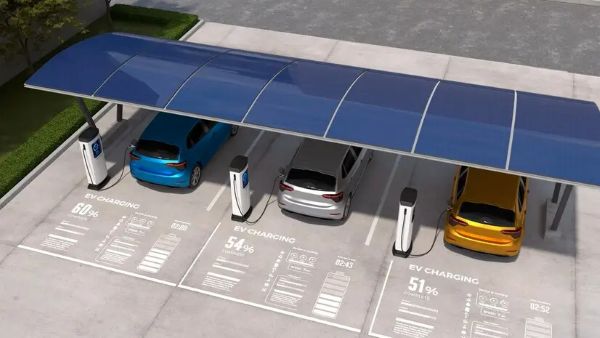


Megawatt EV Charging: Revolutionizing Heavy-Duty Electric Transportation
MCS is a high-performance charging solution engineered specifically for electric trucks, buses, and other heavy-duty commercial vehicles with massive battery capacities. Unlike conventional China EV chargers, MCS delivers ultra-fast charging at power levels exceeding 1 MW, drastically reducing downtime for large fleets.
Key Features:
Ultra-Fast Charging: Charges heavy-duty EVs to 80% in minutes versus hours with current systems.
High Power Output: Supports up to 3.75 MW, ideal for long-haul trucks.
Standardized Design: Based on SAE J3271 standards for broad compatibility.
Interoperability: Works seamlessly across various vehicle models, charging networks, and grid systems.
Why MCS is a Game-Changer for Heavy-Duty Transport
Current Combined Charging System (CCS) standards, such as J1772, suffice for passenger EVs but are far too slow for commercial trucks. For example, a 350 kW CCS charger might take several hours to replenish a large truck’s battery, which is impractical for logistics operations that rely on quick turnaround times.
MCS bridges this gap by delivering megawatt-level power, enabling:
Faster turnaround for freight operators.
Improved fleet management efficiency.
Longer driving ranges supported by quick charging stops.
Lower total cost of ownership by minimizing downtime.
MCS vs. Passenger EV Charging: Why the Difference Matters
MCS is exclusively tailored for heavy-duty applications, not passenger EVs, because:
Battery Limitations: Passenger EVs typically support 50-350 kW charging, suitable for their smaller batteries.
Economic Feasibility: MCS infrastructure costs are far higher than necessary for passenger vehicles.
Battery Health Risks: Subjecting smaller batteries to MW-level power can degrade them prematurely.
Thus, MCS focuses on commercial trucks and buses, where high-power charging is both needed and cost-effective.
Technical Standards Behind MCS
MCS adheres to the SAE J3271 standard, developed with experts including Argonne National Laboratory. Key specifications include:
Power Range: 440 kW minimum, up to 3.75 MW maximum, with voltages up to 1,250V.
Connector & Cooling: A standardized plug different from CCS, equipped with enhanced cooling for extreme power.
Communication: Advanced protocols for seamless interaction between vehicle, charger, and grid.
Grid Integration: Smart load balancing and future bidirectional charging (vehicle-to-grid or vehicle-to-everything).
Importantly, MCS complements—not replaces—CCS, serving heavy-duty vehicles while passenger EVs continue with current fast-charging standards.
Virta’s 1.2 MW Pilot Project: A Glimpse into the Future
Virta’s 1.2 MW pilot in Sweden, launching in 2025 in partnership with Hedin Supercharge, aims to test ultra-fast charging for electric trucks under real-world conditions.
Expectations include:
Scalable 1.2 MW charging capability.
Real-world data on efficiency, grid impact, and vehicle performance.
Potential expansion along Europe’s freight corridors.
This project will be crucial in proving MCS’s feasibility and benefits for decarbonizing freight.
Challenges & Future Outlook
Several hurdles remain:
Infrastructure Costs: Multi-megawatt chargers require costly grid upgrades and high-power equipment, demanding public-private collaboration.
Grid Capacity: Local grids must be reinforced to handle massive loads sustainably, ideally integrating renewable energy.
Vehicle Availability: Few trucks currently support MCS, but major manufacturers like Tesla, Volvo, and Daimler are developing compatible models.
Despite these challenges, MCS’s future is promising. Advances in battery and charging tech will make megawatt charging the backbone of zero-emission heavy transport.
Conclusion: The Road Ahead for Megawatt Charging
MCS represents a quantum leap in EV infrastructure, unlocking the potential for fully electric long-haul trucking. With ultra-fast charging, standardized protocols, and pilot projects underway, MCS is set to revolutionize commercial transportation.
Virta’s 1.2 MW pilot shows that the era of megawatt charging is imminent. By 2025–2030, MCS stations are expected to become common along freight routes worldwide, enabling a cleaner, faster, and more efficient logistics future.
The shift to sustainable trucking is no longer a question of if but when—and MCS is the key to making it happen.Know more about Google SEO Directory
